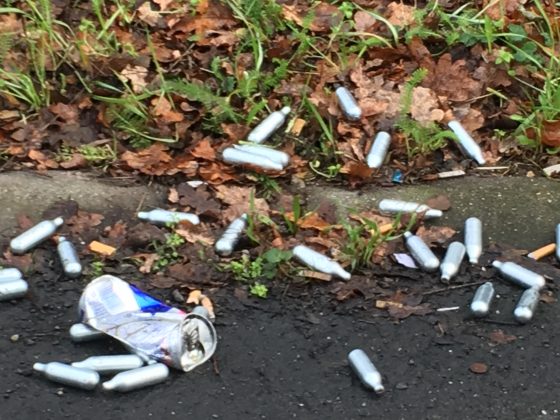Laughing gas implicated in growing number of fatal accidents: NOS


More than 60 people have died in road accidents in the last three years where laughing gas is thought to have been involved, according to figures obtained by NOS.
Police figures requested by the broadcaster showed that nitrous oxide gas was mentioned in 63 fatal accidents and in 362 accidents that left a driver or passenger injured.
Altogether the drug was a contributing factor in nearly 1,800 accidents, including those that caused material damage only.
Police are currently unable to confirm whether a driver is intoxicated with laughing gas because there is no way to test for it at the scene. A test is being developed but it is not known when it will be available.
The figures were highest in 2020, when 25 victims died, but 21 deaths have already been reported this year and police fear last year’s figure will be beaten in 2021.
Driving under the influence, aggressive and unsafe driving, and driving without a licence are among the offences most associated with laughing gas.
Legal drug
Although nitrous oxide is a legal drug, its use behind the wheel is a criminal offence, police spokesman Paul Broer warned. ‘It affects the ability to drive. People underestimate the effect of laughing gas, sometimes with dire consequences.
‘There is no blood or saliva test to show a person has been using laughing gas. We have to get our evidence from what we find, and from witness statements from other road users who, for example, have seen the driver with a canister behind the wheel.’
Research published earlier this year by the Trimbos institute shows that over 37% of Dutch party goers use laughing gas on a regular basis and that young adults are the most likely to do so.
In some, chronic use of laughing gas can deplete vitamin B12, which in turn can damage the spinal cord. Patients develop weakness in their legs, arms and trunk, with tingling and numbness that gradually deteriorates.
A ban of the recreational use of laughing gas was supposed to come into effect on January 1 this year, but was postponed for lack of money to police the measure. This prompted a number of local councils to impose a ban of their own. It is now expected a national ban will be in place by the spring of 2022.
Thank you for donating to DutchNews.nl.
We could not provide the Dutch News service, and keep it free of charge, without the generous support of our readers. Your donations allow us to report on issues you tell us matter, and provide you with a summary of the most important Dutch news each day.
Make a donation